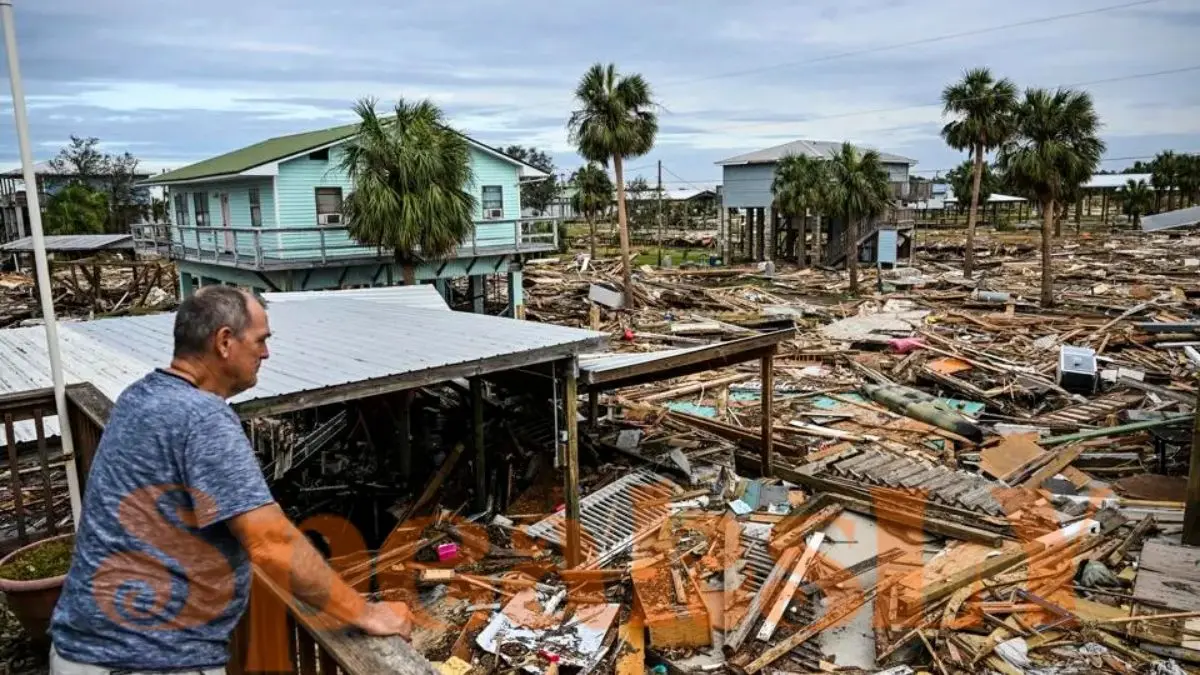NEW YORK/WASHINGTON, Oct 17 – Florida homeowners are grappling with skyrocketing insurance premiums and dwindling coverage options in the wake of four major hurricanes over the past four years. The latest storms, Hurricane Milton and Hurricane Helene, have intensified concerns about the state’s already fragile insurance market.
For 32 years, Jim Tynan had reliable homeowners’ insurance with Allstate for his 1,200-square-foot condo in Ponte Vedra, Florida. But in January, his policy was dropped. After calling ten different agencies, he found one that would insure him—but at a 50% higher premium. (Hurricane News)
“I’m scared my new company will drop me too,” Tynan shared after the latest hurricane. Though he hasn’t been directly hit by a hurricane, he lives just two miles from the ocean, making him vulnerable.
Many Florida residents are echoing Tynan’s fears. Six other homeowners contacted by Reuters, living on both coasts and in the Florida Keys, expressed concern that the recent hurricanes would lead to even more price hikes, coverage exclusions, or the complete loss of insurance altogether.
Insurance Companies Retreat, Premiums Soar
Allstate, responding to the rising risk, has been forced to drop some customers but claims to be working with regulators to protect as many as possible. “We work with other carriers to offer alternative coverage options when we cannot renew policies,” an Allstate spokesperson said.
Florida’s insurance market is in a precarious state. Homeowner premiums have surged nearly 60% between 2019 and 2023, and several large insurance providers have reduced their coverage in the state. The state-backed nonprofit insurer, Citizens, has been taking on more policies as private insurers pull back. (Insurance News)
Hurricane Milton, which hit Florida’s southwest coast, arrived just 12 days after Hurricane Helene made landfall on the northwest coast. This double blow has left insurers even more apprehensive about continuing coverage in the state.
“This will certainly cause insurers to reconsider their presence in Florida’s market,” said Marc Ragin, a risk management professor at the University of Georgia.
Citizens Insurance and Future Concerns
Citizens Insurance, considered the insurer of last resort, has been absorbing a growing number of policies as private insurers pull back. The nonprofit currently holds over 1.2 million policies as of June 2024, a significant increase from 1.14 million at the end of 2022. This trend is expected to continue, especially after Milton and Helene. (Insurance Milton News)
Florida Governor Ron DeSantis has raised concerns about how Citizens will manage if large storms hit. However, Citizens spokesperson Michael Peltier assured the public that the company is financially structured to handle claims, including potential surcharges on policyholders if necessary.
“We’ve received about 80,000 claims related to Hurricane Milton and expect to cover them without imposing additional assessments,” Peltier said.
Analysts predict more reliance on Citizens Insurance moving forward. “We could see Citizens taking on even more policies as private insurers retreat from the market,” said Chai Gohil, a global insurance analyst with Neuberger Berman. (Insurance Milton Florida)
Reinsurance Market Impact
The rapid succession of hurricanes has dashed hopes for a softer insurance market, said Ken Gregg, CEO of Orion180, a private insurer. Gregg noted that Milton will likely affect the reinsurance market, leading to capacity limitations and higher prices in the upcoming season.
Rising reinsurance costs are pushing primary insurance companies to increase their own premiums. Brian Schneider, senior director of insurance at Fitch Ratings, explained that reinsurers’ price hikes have a trickle-down effect on property insurance across Florida.
Insurers Remain Committed Despite Risks
Despite the challenges, several large insurance providers are committed to staying in the Florida market. State Farm Florida Insurance and Universal Property & Casualty Insurance, two of the state’s largest providers, have reaffirmed their commitment.
“State Farm plans to continue our presence in Florida,” a company spokesperson told Reuters.
Arash Soleimani, chief strategy officer at Universal Property & Casualty, echoed these sentiments. “Nothing that happened this year has been outside our modeled expectations,” he said, signaling confidence in handling future claims.
Security First Insurance, a Florida-focused insurer, said it remains steadfast in its commitment to the state, with CEO Locke Burt explaining that a hurricane like Milton would be “an earnings event, not a capital event” for the company.
However, other insurers, such as Progressive, have reduced their exposure in Florida, citing catastrophic risks. Farmers Insurance also exited its own-branded coverage in 2023, though it continues to serve customers under its Bristol West and Foremost brands. Travelers, meanwhile, has avoided underwriting in Florida due to weather-related risks.
Worries for Florida Homeowners
For many Florida homeowners, the future of their insurance remains uncertain. Sherri Hansen, who has lived in the Florida Keys for 35 years, voiced her fears: “The reality is we may be forced out of our home. All our eggs are in this one basket.”
As the insurance industry braces for more storms and price hikes, residents must navigate rising premiums and the growing difficulty of securing reliable coverage.






